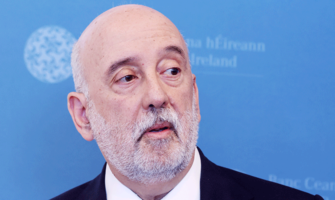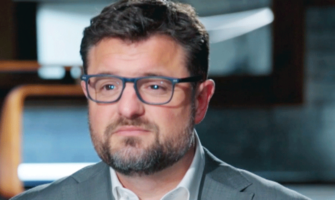
Tim Lombard
Environmental “zealots” are putting lives at risk by objecting to flood defences, declared Fine Gael senator Tim Lombard in the wake of the catastrophe that hit Midleton last month. The implication of the Cork man’s Old Testament slur was that the town would have been spared disaster had environmentalists not objected to planned engineering works.
Taoiseach Leo Varadkar and Limerick TD Patrick O’Donovan – both FG also – had already tried to frame environmentalists for the calamity in Co Cork. In fact, the proposed flood defences for Midleton – although promised years ago – have not yet reached planning permission stage, so nobody has even had the chance to object.
The irony is that ignoring the advice of environmental experts has led us directly to this predicament. The myriad ways in which we have tried to tame and suppress nature – clearing hedgerows and woodland, draining peatland, straightening rivers, concreting over huge areas etc – have all conspired to send more water into our waterways and then to send it downstream more quickly.
Research from Aberystwyth University has shown a 40% reduction of peak flood magnitude by planting trees and hedgerows, to mention just one of numerous nature-based solutions that have been proven to work.
Disasters such as happened in Cork are invariably used by the OPW as an excuse to entrench its approach, one that could be summed up as follows: if it’s not entombed in concrete, it’s not worth doing. Midleton’s misery is also being weaponised, by colleagues of Tim Lombard in FG, to give another push to their draconian Housing and Planning and Development Bill, which aims to greatly restrict the democratic right to object to bad planning decisions.
Meanwhile, a key weapon in the nature-as-a-force-to-be-controlled philosophy is herbicides, in particular the ubiquitous glyphosate. Europe’s favourite weedkiller may soon be banned in the EU, which would put a multibillion-dollar hole in the earnings of Monsanto-Bayer, seller of the most popular glyphosate product, RoundUp weedkiller. A vote last month to give glyphosate a 10-year licence extension failed to get the required “qualified majority” of EU states. Ireland’s agriculture minister, Charlie McConalogue, voted in favour of relicensing – Ireland always does.
Another vote will be held before December 14, when the licence runs out.
We’ve been here before. Several times in recent years the unelected European Commission has extended the licence after governments failed to give RoundUp the green light. But with every year, peer-reviewed scientific evidence of the product’s harms grows. Last week a major report from the Global Glyphosate Study revealed that even in low doses (corresponding to the EU acceptable daily intake) the chemical causes leukaemia in young rats.




















